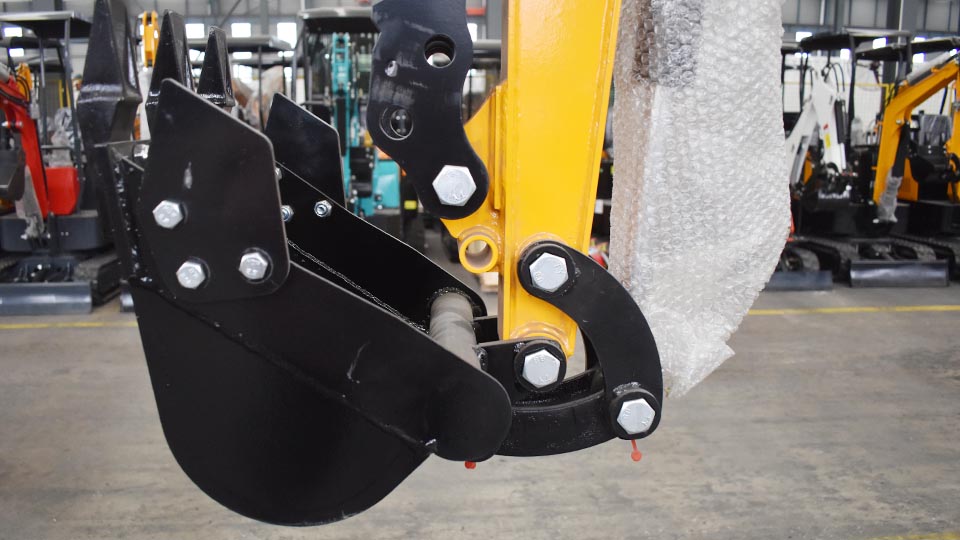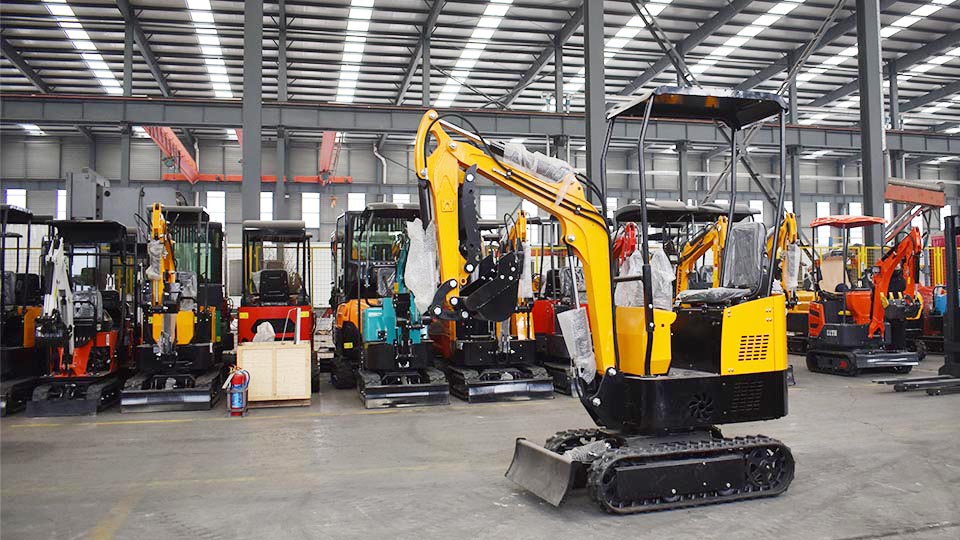Introduction
Mini excavators have revolutionized the construction industry by offering compact, versatile, and powerful solutions for a wide range of tasks. These machines are designed to operate in tight spaces, making them ideal for urban construction, landscaping, and utility work. One of the key considerations when selecting a mini excavator is its weight. Understanding the weight of a mini excavator is crucial for several reasons, including transportability, stability, and performance. This article will delve into the typical weight ranges of mini excavators, the factors that influence their weight, and how weight impacts their functionality.
Weight Ranges of Mini Excavators
Mini excavators come in various sizes and weight classes, each designed to meet specific needs. Generally, mini excavators weigh between 1,000 and 10,000 pounds (approximately 450 to 4,500 kilograms). This wide range allows for different applications and environments. For instance, a lightweight mini excavator weighing around 1,000 pounds is perfect for tight spaces and delicate work, such as gardening or small-scale landscaping. On the other hand, a heavier mini excavator weighing close to 10,000 pounds can handle more robust tasks like trenching and heavy-duty excavation.

Factors Influencing Mini Excavator Weight
Several factors contribute to the weight of a mini excavator. Understanding these factors can help in selecting the right machine for a specific job.
Engine Size and Power: The engine is one of the heaviest components of a mini excavator. Larger engines, which provide more power, naturally increase the overall weight of the machine. For example, a mini excavator with a powerful diesel engine will weigh more than one with a smaller engine.
Hydraulic System: The hydraulic system, including pumps, valves, and cylinders, also contributes significantly to the weight. Advanced hydraulic systems, which offer better performance and efficiency, often come with additional weight.
Frame and Body Construction: The materials used in the construction of the mini excavator's frame and body affect its weight. High-strength steel, while durable and robust, adds to the overall weight. Some manufacturers use lightweight alloys to reduce weight without compromising strength.
Attachments and Accessories: The weight of a mini excavator can vary depending on the attachments and accessories it is equipped with. For instance, a mini excavator with a standard bucket will weigh less than one with a heavy-duty ripper attachment.
Counterweights: Counterweights are added to mini excavators to improve stability, especially during excavation and lifting operations. These weights can significantly impact the overall weight of the machine.
The Importance of Weight in Mini Excavator Performance
The weight of a mini excavator plays a crucial role in its performance and functionality. Here are some key aspects to consider:
Stability and Balance: Heavier mini excavators generally offer better stability, especially when working on uneven or soft ground. This stability is essential for accurate and safe excavation.
Payload Capacity: The weight of the mini excavator affects its payload capacity. A heavier machine can handle more weight without tipping over, making it suitable for tasks that require lifting and moving heavy materials.
Transportability: Lightweight mini excavators are easier to transport, especially in urban areas with narrow streets and limited access. They can often be transported on small trailers without requiring specialized equipment.
Fuel Efficiency: Generally, lighter mini excavators tend to be more fuel-efficient. This is because they require less power to operate, resulting in lower fuel consumption.
Ground Pressure: The weight of a mini excavator, combined with its track or wheel configuration, determines the ground pressure it exerts. Lower ground pressure is desirable for working on sensitive surfaces, such as lawns or soft soil, to avoid causing damage.
Selecting the Right Mini Excavator Based on Weight
When choosing a mini excavator, it is essential to consider the specific requirements of the job. Here are some guidelines to help in the selection process:
Job Requirements: Assess the tasks that need to be performed. For example, if the job involves heavy lifting and robust excavation, a heavier mini excavator may be more suitable. Conversely, if the job requires working in tight spaces and delicate environments, a lighter mini excavator might be preferable.
Transportation Needs: Consider how the mini excavator will be transported to and from the job site. Lightweight mini excavators are easier to transport and may not require specialized trailers or permits.

Ground Conditions: Evaluate the ground conditions at the job site. Soft or uneven ground may require a heavier mini excavator for better stability, while hard or compacted surfaces may allow for a lighter machine.
Fuel Efficiency: If fuel costs are a concern, consider the weight of the mini excavator. Lighter machines are generally more fuel-efficient, which can result in cost savings over time.
Attachments and Accessories: Think about the attachments and accessories that will be used with the mini excavator. These can add significant weight and should be factored into the overall weight considerations.
Conclusion
The weight of a mini excavator is a critical factor that influences its performance, stability, transportability, and fuel efficiency. By understanding the weight ranges of mini excavators and the factors that contribute to their weight, construction professionals and equipment buyers can make informed decisions. Selecting the right mini excavator based on weight ensures that the machine is well-suited for the specific job requirements, leading to efficient and effective operations. Whether for small-scale landscaping or heavy-duty excavation, the right mini excavator can make all the difference in project success.
Post time:Sep-25-2020
